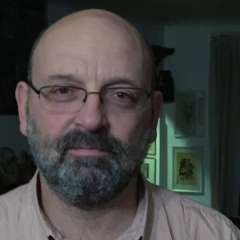The Vienna Philharmonic’s annual visit has long been one of the highlights of the Carnegie Hall season. Hard to believe, Christian Thielemann has never conducted the orchestra in New York, so the three performances – featuring significant examples of Romantic and post-Romantic music from German-speaking lands – were anticipated with even more excitement.
On Friday night, Thielemann juxtaposed a pair of tone poems whose initial drafts were both sketched in 1899, even if Schoenberg’s Verklärte Nacht, composed in just a few weeks, wasn't orchestrated until much later, and Richard Strauss only completed Eine Alpensinfonie in 1915. Conceived at the dusk of Romanticism, both works expand the concept of tonality close to the point of no return. Nevertheless, one would not know, by listening to just these examples, that Schoenberg would soon step over a threshold that Strauss would not dare – despite his long career – to cross.
There are common traits between the two works that Thielemann clearly emphasised. Both sounded anchored in the Wagnerian idiom that the conductor treasures so much. Lush, Tristan-like sonorities were perceivable in every musical corner. In Strauss, the description of the moments preceding the sunrise evoked the opening bars of Das Rheingold. Landscapes were painted in expressionist colours: Strauss’ descriptive pages often had a subjective inner-voice quality, while the evolving sentiments of the two lovers in Verklärte Nacht were projected in the shifting descriptions of the wood at night.
As rendered by the Vienna Philharmonic, the string orchestra version of Verklärte Nacht had the limpidity of the original sextet scoring, despite the large orchestral apparatus (eight double basses) involved. The coordination between the members of the ensemble was almost perfect, while individual voices (mainly concertmaster Rainer Honeck’s) emerged from and were reintegrated into the soundscape with utmost naturalness. In a score faithfully illustrating the evolution of a couple’s complex sentiments, as expressed in the five stanzas of Richard Dehmel’s poem of the same title, the music flowed with great smoothness. Frequent mood fluctuations – such as the abrupt transition to D major at the beginning of the Sehr breit und langsam segment, signalling the man starting to declare his acceptance – were tackled with serenity while the overall intensity of the interpretation was never in doubt.
Requiring massive instrumental forces, Eine Alpensinfonie could sometimes sound overly descriptive or full of bombast or both. Not so in the hands of this conductor who made his debut at the helm of the Philharmonic with this very work back in 2000. The description of a day trip ascending a mountain peak was a superbly crafted sonic arch, epic and full of tension. Conducting without a score, Thielemann maintained a firm grip of tempi and dynamics, nevertheless allowing the orchestra’s players to display their virtuosity. The expected high points – the menacing storm or the breathtaking C major arrival at the summit, with Sebastian Breit‘s oboe contemplating the surrounding panorama – basked in their own glory. There were other tableaux dotted with beautifully rendered intricacies: the mysterious beginning, the Pastoral inspired On Flowering Meadows, Though Thickets and Undergrowth… with its multi-instrumental dialogue, or the long, melodious and a tad sadness-infused epilogue.
After interpreting two works attempting to break loose from established conventions, Thielemann and his musicians eagerly paid their respects to a different kind of tradition, ending the evening with a little waltz encore, enthusiastically demanded and received.




